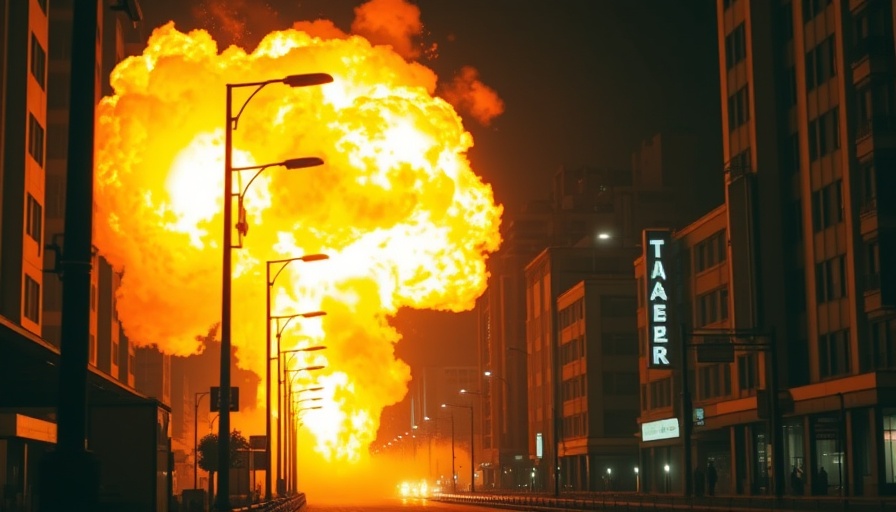
Understanding the Current India-Pakistan Tensions
The recent military operation initiated by India in Pakistan marks a significant escalation in ongoing tensions between the two nations. Indian forces have reportedly launched missile strikes in Pakistani-administered Kashmir, specifically targeting positions near Muzaffarabad. While the Indian military has stressed that no Pakistani army bases were affected, the reaction from Islamabad indicates that this development is being treated as a serious offense.
In an era where geopolitical landscapes are shifting constantly, understanding the ramifications of such actions is crucial—especially for followers of faith who care about peace and reconciliation.
The Human Element: What’s at Stake for Civilians?
As always in military conflicts, the most impacted group is the civilian population caught between two warring powers. Reports indicate that the residents of Muzaffarabad and surrounding regions are facing heightened anxiety and uncertainty. Humanitarian efforts become all the more critical in times like this, as innocent lives are often displaced, and access to basic needs can become severely restricted.
Historical Context: The Roots of India-Pakistan Conflict
The backdrop of this military action is essential to understand. The conflict between India and Pakistan dates back to 1947, revolving around territorial disputes, particularly over Kashmir. Each side has positions deeply rooted in national identity, making dialogue challenging. This context informs not just the actions taken today but the potentially grave consequences for tomorrow.
Religious Perspectives on Conflict Resolution
For many Christians and faith-based organizations, engaging in interfaith dialogue becomes vital in times of conflict. Prominent leaders from various denominations advocate for peace, urging followers to pray for resolution and consider their role in fostering understanding. Churches in both India and Pakistan have been known to reach out across the divides, emphasizing love and unity over enmity.
International Reactions and the Role of Global Powers
This military operation is likely to draw the attention of global powers, particularly because both India and Pakistan possess nuclear capabilities. Countries like the United States and members of the European Union may call for restraint, given the potential for escalation that could involve the wider international community.
Actions You Can Take
As concerned individuals, especially those engaged in humanitarian efforts, it is essential to stay informed and take action. Support organizations that provide relief to affected civilians, advocate for diplomatic solutions, and pray for peace. Your voice can be significant in promoting justice and compassion.
In conclusion, as the situation develops, it remains critical for us to engage thoughtfully and compassionately. Understanding these events not only equips us with knowledge but also prompts us to seek God's wisdom and intervention in troubled times. Stay tuned for updates and consider your role in fostering unity and peace in these challenging moments.
 Add Row
Add Row  Add
Add 








Write A Comment